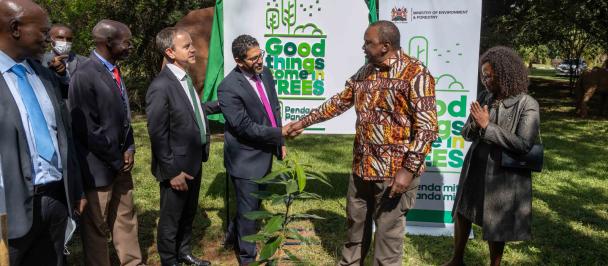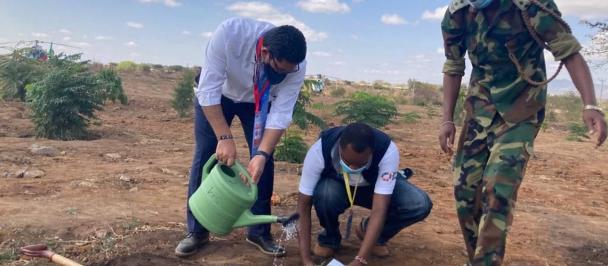Sound Chemicals Management Mainstreaming and UPOPs reduction in Kenya
Background
Kenya is the most industrially developed country in East Africa and manufacturing accounts for about 14% of GDP; due to urbanization, the industrial and manufacturing sectors have become increasingly important to the Kenyan economy, whilst agriculture is still the predominant economic sector. The use of chemicals, mainly in the agriculture and health sectors, has shown a steady upward increase over time, as the country pursues its goals of meeting domestic and export needs of agricultural production and for controlling pests. Kenya is also urbanizing rapidly, as economic activity becomes increasingly concentrated in urban centres with strong positive network effects: whereas the population of urban dwellers in Kenya stood at 34.5% in 1999, it is expected to increase to 50% by the year 2015 and much more thereafter, with implications of increased loads of solid wastes including hazardous wastes.
Kenya is not a major producer of synthetic chemicals. However in Kenya there is extensive extraction of minerals that contributes to chemical manufacturing including soda ash, fluorspar, diatomite and titanium. Prospection for gold, iron ore, petroleum, rare earth metals, etc., are high. The other major source of 15 chemicals is their recovery from waste products, including WEEE. Therefore, mainstreaming chemicals management into development processes is important to ensure that developers and policy makers understand the linkages between chemicals and waste management in relation to development activities and poverty reduction programmes.
Project objectives
The UNDP-GEF Sound Chemicals Management Mainstreaming and UPOPs Reduction in Kenya project intends to protect human health and the environment by managing the risks posed by production, use, import and export of chemicals and reducing/preventing the release of UPOPs (Unintended Persistent Organic Pollutants) and toxic compounds originating from the unsafe management of waste in two key sectors: Health Care Waste and Municipal Waste. These sectors are among the highest priorities identified in the reviewed and updated National Implementation Plan.
On the Health Care Waste Management side, the project will adopt an integrated approach aimed at increasing the proper management of waste within the hospital facilities (increasing segregation, reducing waste generation) and by replacing the dangerous disposal waste modalities currently adopted (open burning or burning in single chamber incinerators) by Stockholm Convention-compliant equipment. Training will be delivered both at Health Care Facility level and in classroom training events, and will be based on the WHO blue book guidance tailored to the country needs.
On the municipal waste side, the project intends to reinforce the 3R (Reduce, Reuse, Recycle) economy on two specific waste streams, by enhancing their upstream collection, ensuring the quality of recovered material, and securing access to national market by promoting cooperation with domestic industries. This is for providing a valid alternative to the dumpsite economy, and preventing the release in the environment of UPOPs and toxic substance upon open burning of these waste streams.
The project also includes a component related to the sound management of chemicals, by implementing activities on UPOPs monitoring, upgrading of the relevant regulation on chemicals, and establishing a Pollutant Release and Transfer Register database.

 Locations
Locations



